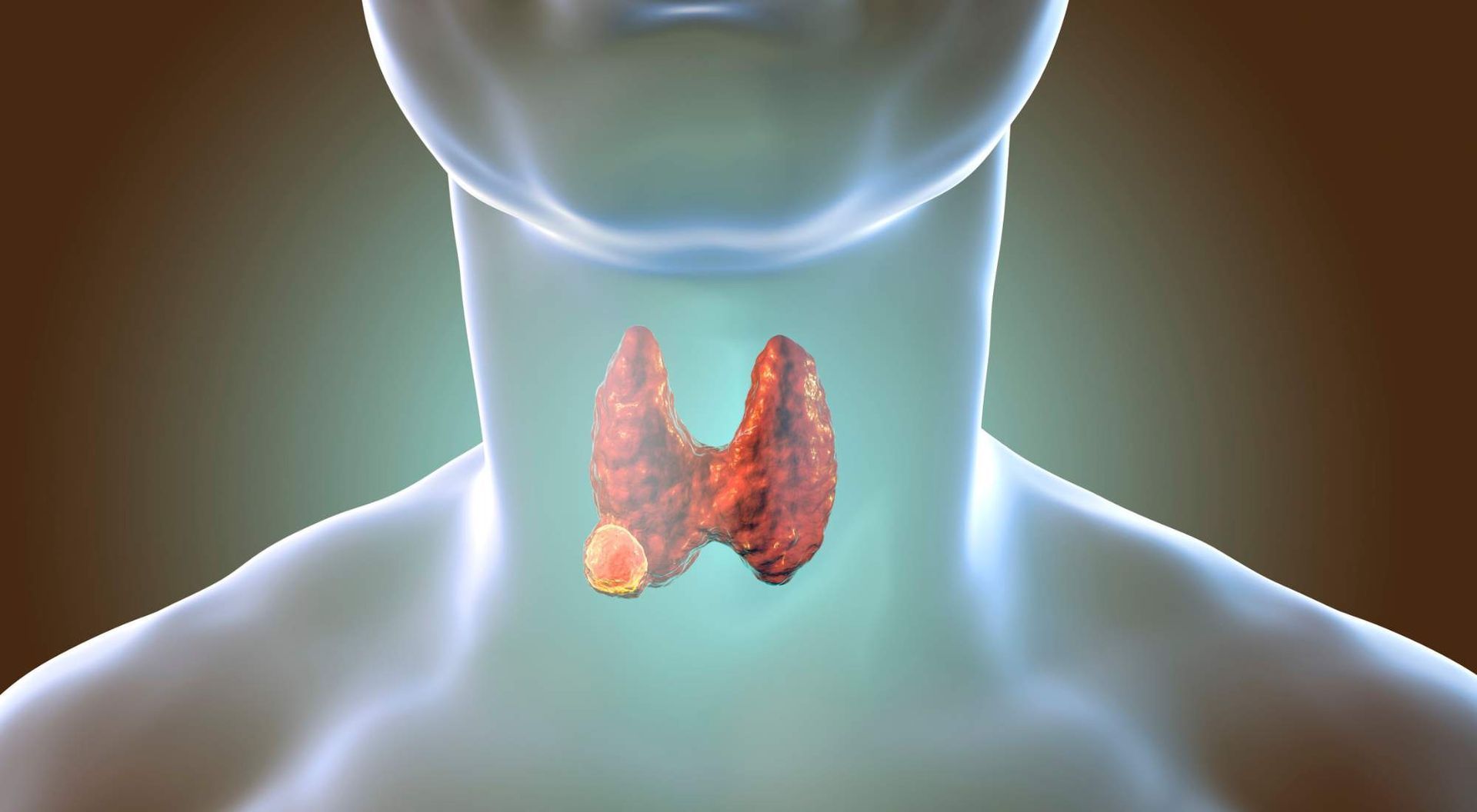Identifying Causes, Symptoms, and Treatments for a Hashimoto’s Attack
"The content below is not intended to be a substitute for professional medical advice, diagnosis, or treatment. Always seek the advice of your physician or other qualified health provider with any questions you may have regarding a medical condition."
Imagine that you’re preparing to do something big and exciting.
Maybe you’re about to go on the vacation of a lifetime. Or you’re packing for a conference to give a keynote that could advance your career. Maybe it’s the day before your wedding.
Whatever it is, you’re elated and in the clouds, thinking nothing could drag you down — but then you suddenly feel like you’ve been stuffed with rocks and hit by a car. It’s your Hashimoto’s, and it is flaring up.
In this article, we will explore Hashimoto’s attacks and their symptoms, causes, and treatments. As well as, what you can do to help prevent Hashimoto’s from taking away from your life’s biggest moments.
Table of Contents
What Is a Hashimoto’s Attack?
A Hashimoto’s attack, also known as a “flare-up”, is a sudden outburst or intensification of symptoms caused by a trigger or stressor on your immune system. Hashimoto’s flare-ups can cause the worsening of present symptoms and the development of new ones. This is also referred to as an autoimmune flare-up.
Hashimoto’s attacks affect each patient differently, so flare-ups can present themselves in numerous ways and intensities. What triggers the flare-ups may also vary between patients.
What Happens During a Hashimoto’s Flare-up?
Hashimoto’s thyroiditis is an autoimmune disorder where antibodies attack the thyroid as if they were harmful bacteria. Over time, this causes scarring that leads to a decreased function of the thyroid.
Hashimoto’s attacks are the result of instability between the thyroid and Hashimoto’s. This triggers the thyroid to be gradually attacked by the immune system, which leads to an increase in symptoms and their intensity.
Symptoms of Hashimoto’s disease that can intensify or develop during a Hashimoto’s attack include:
- Goiter enlargement and sensitivity
- Muscle weakness
- Hair loss
- Bradycardia (slow heart rate)
- Memory issues
- Fatigue and body aches
- Sudden, unexplained weight gain
- Constipation
- Depression
Living with Hashimoto’s disease can be difficult. Sudden flare-ups and attacks can disrupt your plans and ruin your day.
Navigating your triggers and treatment all alone can add more weight to what feels like a never-ending struggle.
You don’t have to manage Hashimoto's attacks alone.
Dr. Donna Sergi at HealthierU can guide you through a comprehensive and holistic nutritional treatment plan to help you take your life back. Discover the holistic power of nutrition and schedule a free consultation today.
What Does a Hashimoto’s Attack Feel Like?
A Hashimoto’s flare-up feels like a sudden onslaught of multiple Hashimoto’s symptoms.
With Hashimoto’s thyroiditis, symptoms develop over time. You may not notice certain symptoms until the disease progresses. As you go through treatment, these symptoms may decrease or disappear.
Hashimoto’s attacks are the development of sudden reappearance of symptoms that can even occur during treatment.
Patients suffering from a Hashimoto’s flare-up report feeling:
- Depressed or emotionally unwell
- Constipated
- Weak
- Sore in the joints and muscles
- Sensitive to the cold
- Insomniatic
- Brain fog
A Hashimoto’s attack can also affect physical appearance by causing:
- Dry skin
- Puffy face
- Brittle hair
- Hair loss
How Do You Know if You’re Having a Hashimoto’s Flare-Up?
Like most flare-ups caused by disease or illness, Hashimoto’s attacks affect every individual differently, and there is no way to test if you are having a flare-up. You may know if you are having a Hashimoto’s flare-up based on how you are feeling.
The primary reported symptom of Hashimoto’s disease and attacks is fatigue. Depression is another common symptom of Hashimoto’s attacks.
Depression and fatigue can exacerbate and feed into one another, and when a Hashimoto’s flare-up prompts both, it can cause sufferers to feel:
- Exhausted
- Weak
- Aching
- Sad
- Low
- Beat up
- Unable to do very much at all
Recognizing a Hashimoto’s Attack vs. General Symptoms of Hypothyroidism
It can be hard to distinguish whether your symptoms are a result of your overall thyroid disorder or caused by a flare-up.
The most noticeable effect of a Hashimoto’s attack is the intensity.
Flare-ups may be the result of heightened thyroid instability and can result in increased severity and periods of symptoms. Symptoms caused by the general disorder are typically chronic and static in intensity and moderation.
So, objectively, your Hashimoto’s attack symptoms will be like the general symptoms of your disorder but worse.
Hashimoto’s flare-ups have been reported to periodically cause states of hyperthyroidism. Common symptoms of an overactive thyroid prompted by a Hashimoto’s attack include:
- Fatigue
- Anxiety
- Rapid heart rate
- Insomnia
- Irritability
Common Causes of a Hashimoto’s Flare Up
Hashimoto’s flare-ups have plenty of different and diverse causes.
Any changes that your body undergoes may prompt conditions that cause a Hashimoto’s attack. You can control some of these triggers, and others, like genetics, may leave you at the mercy of your reactive thyroid disorder.
Inflammation
Inflammation is the body’s natural response to pathogens, damaged cells, and toxic compounds. Chronic inflammation is associated with autoimmune disorders because immune disorders cause the immune system to mistakenly attack the body.
Hashimoto’s disease is one of the 80 known autoimmune disorders. So it’s no surprise that Hashimoto’s flare-ups may be caused by the acute and/or chronic inflammation caused by the disease. Avoid exacerbating inflammation caused by Hashimoto’s attacks by avoiding inflammatory triggers.
Common symptoms of inflammation and Hashimoto’s flare-ups are:
- Joint pain
- Muscle pain
- General malaise
- Edema
To keep inflammation down, experts recommend that you:
- Abstain from tobacco
- Limit or avoid alcohol
- Decrease your sugar intake
- Exercise
- Reduce stress
- Eliminate processed foods
- Increase your intake of anti-inflammatory foods like:
- Vegetables
- Oily fish
- Turmeric
- Leafy greens
- Green tea
Poor Thyroid Function
Hashimoto’s disease causes your body to attack the thyroid, which gradually causes damage that limits thyroid function (hypothyroidism). Normal functioning thyroids produce thyroid hormones called thyroxine (T4) and triiodothyronine (T3) which support metabolic needs and homeostasis.
Without thyroid hormones, your body slows down the way it processes energy. The reduced energy production causes fatigue and other Hashimoto’s attack symptoms. To supplement the body’s inability to produce thyroid hormones, you may be prescribed a hormone supplement called levothyroxine.
Hashimoto’s flare-ups may sometimes be caused by incorrect dosage or interference with the medication.
Medications and supplements that may impair levothyroxine absorption include:
- Antacids
- Iron
- Sucralfate
- Cholestyramine
- Orlistat
- Sevelamer
- Proton pump inhibitors
Some medications inhibit levothyroxine metabolism, such as:
- Carbamazepine
- Phenobarbital
- Phenytoin
Speak with your doctor before quitting any medications while taking levothyroxine.
Physical and Mental Stress
Physical and mental stress exacerbate autoimmune disorders, like Hashimoto’s disease, by causing:
- Worsening inflammation
- Immune dysregulation
- Hormone imbalances
Immune dysregulation and hormone imbalances can affect how much thyroid hormone is produced by your already underactive thyroid. This may trigger Hashimoto’s flare-ups and worsen current symptoms.
Vitamin and Nutritional Deficiencies
Vitamin deficiencies have been linked to the triggering and exacerbation of Hashimoto’s disease.
Nutritional deficiencies that may further cause thyroid impairment and trigger a Hashimoto’s attack include:
- Vitamin D: Vitamin D deficiency has been correlated with higher concentrations of anti-thyroid antibodies and increased thyroid stimulating hormones (TSH). When this vitamin deficiency is addressed, antibodies and TSH levels decrease. Foods that contain high amounts of vitamin D are:
- Mushrooms
- Dairy products
- Eggs
- Liver
- Soy
- Oily fish
- Fortified foods
- Zinc: Zinc is vital for the synthesis of thyroid hormones. A zinc deficiency can result in decreased hormone production and slowed metabolic rate. Foods that are high in zinc include:
- Seafood
- Red meat
- Cashews
- Chickpeas
- Oats
- Seeds
- Tofu
- Selenium: Selenium contributes to the antioxidant defense in the thyroid by helping the body remove oxygen-free radicals generated by the production of thyroid hormones. Without a proper selenium intake, thyroid antibodies become unmanaged, which means more antibodies that can attack the thyroid and cause flare-ups. Selenium is not produced by the body, so the only way to get selenium is through supplements and foods like:
- Pork
- Beef
- Poultry
- Fish
- Nuts
- Beans
If you are unsure of what vitamin or nutritional deficiencies may be prompting your Hashimoto’s attacks, you can always talk to your physician or a nutrition specialist.
For over a decade, Dr. Donna Sergi has been helping Hashimoto’s patients navigate holistic nutritional healing. Not only can she provide nutritional support, Dr. Sergi can help you develop a lifestyle that naturally helps reduce your Hashimoto’s flare-ups and symptoms.
Don’t suffer. Discover a new way to confront Hashimoto's attacks with Dr. Donna Sergi at HealthU.
Coping with Hashimoto's Attacks
Treatment doesn’t end at the clinic or doctor’s office. Taming Hashimoto's disease and attacks may mean restructuring your lifestyle to help cope with attacks and flare-ups.
This can be done in two ways:
- Through epigenetics: Changing the expression of your genes through diet, exercise, and stress management.
- By using nutrition to manage your body’s inflammatory pathways.
Repair Your Gut
Any autoimmune condition needs all the immune support necessary to reduce attacks and flare-ups. Nearly 80% of your immune system is located in your gut.
Thyroid disorders, like Hashimoto’s disease, are also associated with gut issues like dysbiosis. Dysbiosis is a gut imbalance that affects your microbiota and causes metabolic changes.
Your stomach is permeable so that nutrients from food can be absorbed into the bloodstream. Gut dysbiosis can cause the gut to become leakier, to the point where it’s no longer just nutrients getting into your bloodstream. This is known as “leaky gut syndrome”.
Leaky gut syndrome causes food molecules, toxins, bacteria, and pathogens to enter your bloodstream. In response, your immune system activates your antibodies and causes inflammation to get rid of the intruders.
Optimize Your Diet and Lifestyle
Stress and diet are said to be one of the biggest instigators of inflammation. Avoiding inflammatory foods and reinvigorating your diet with nutrients to help supplement your thyroid deficiencies may be necessary to cope with Hashimoto's disease.
Foods that support thyroid function are:
- Fish rich in Omega-3 Fatty acids
- Nuts
- Whole grains
- Berries
- Eggs
- Yogurt
Foods you may want to avoid to help reduce Hashimoto’s symptoms and attacks include:
- Fried foods
- Foods high in sugar
- Gluten
- Excessive alcohol
- Foods high in sodium
In patients with gluten intolerances and gastrointestinal conditions, gluten can increase gut permeability and cause leaky gut syndrome. Research has found a significant relationship between thyroid disorders and Celiac diseases, as well as gastrointestinal issues like gastritis.
It is also
believed that gluten molecules are similar to the structure of thyroid tissue. Through molecular mimicry, the antibodies cannot discern the body’s tissue from the foreign invaders and begin to indiscriminately attack the thyroid.
Reduce Stress
Evidence suggests that stress management may be beneficial in reducing the anti-thyroid antibodies responsible for Hashimoto's flare-ups.
Stress reduction doesn’t have to be one big change. You can start slow and implement practices like:
- Meditation
- Deep breathing
- Progressive muscle relations
- Yoga
- Light to moderate exercise
Learn How To Decrease Inflammation During a Hashimoto’s Attack With HealthierU
Hashimoto’s can make you feel like your life is out of control.
Managing your symptoms is hard enough, you don’t need to be stressed out and further aggravate your Hashimoto’s disease. End the endless cycle of Hashimoto’s attacks and triggers with the holistic power of nutrition.
Learn about how nutrition can be a natural supplement to your Hashimoto’s treatment plan at HealthierU.
Dr. Donna Sergi will work with you to create a nutritional plan to help support your body, mind, and immune system. Schedule your consultation today.






